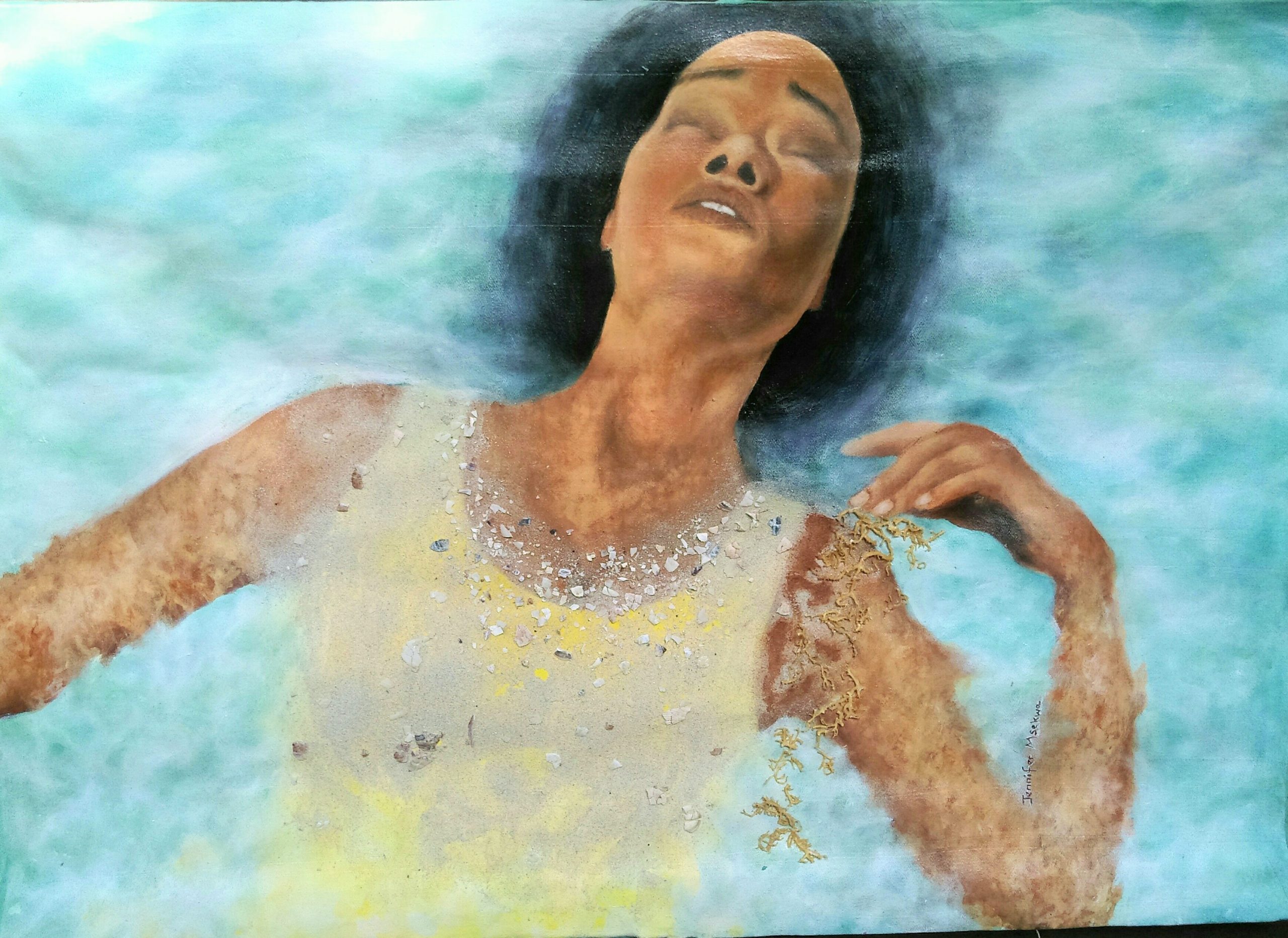Welcome to the Social Art Award 2025 – Online Gallery!
We are grateful for the many powerful contributions from artists across the globe. The selected works reflect the diversity of contemporary social art practices and address urgent issues such as climate and water crises, social and economic inequality, migration, conflict, discrimination, and the protection of human and more-than-human life.
Below you will find the submissions from the edition of 2024/2025 that passed the initial jury round. The Online Gallery offers public visibility to these works and supports dialogue around their themes; it does not replace the final jury decision.
Thank you to all artists for sharing your inspiring and committed work. We invite you to explore the gallery and engage with the perspectives shaping the Social Art Award 2025.
women against nature destruction
Jennifer
Seaweed provides income for 90% of women in Zanzibar but in 2006 the crop decreased ,2010 to the end of 2004 it was extinct, the number of farmers who are 90% women decreased from 400 to 150 caused by climate change .They could not adapt to new technique that required them to swim, majority of them don’t have access to swimming lessons from childhood based on their culture so many farmers had to quit the business and doors to gender based violence were opened from being dependent . Because 90% of the global warming goes into the ocean affecting marine species and people depending on it mainly women, this project intends to elevate their involvement in conservation movements and adapt into new ways of dealing with the existing problem. Zanzibari women are known to be fond of art based on their culture and history, therefore art is the perfect tool for not only connect with the community but also to share, digest and practice the environmental knowledge that seem to be complex to majority which is vital for having a stable community strong enough to fight, gender-based violence caused by climate change. Also promote the ocean’s conservation by introducing ways of using natural materials found in coastal areas as a replacement for non-biodegradable materials like plastics where 73% of beach litter worldwide is plastic affecting the ocean and contribute to climate change, eco-friendly alternatives will benefit lives of both marine species and women.
Seaweed provides income for 90% of women in Zanzibar but in 2006 the crop decreased ,2010 to the end of 2004 it was extinct, the number of farmers who are 90% women decreased from 400 to 150 caused by climate change .They could not adapt to new technique that required them to swim, majority of them don’t have access to swimming lessons from childhood based on their culture so many farmers had to quit the business and doors to gender based violence were opened from being dependent . Because 90% of the global warming goes into the ocean affecting marine species and people depending on it mainly women, this project intends to elevate their involvement in conservation movements and adapt into new ways of dealing with the existing problem. Zanzibari women are known to be fond of art based on their culture and history, therefore art is the perfect tool for not only connect with the community but also to share, digest and practice the environmental knowledge that seem to be complex to majority which is vital for having a stable community strong enough to fight, gender-based violence caused by climate change. Also promote the ocean’s conservation by introducing ways of using natural materials found in coastal areas as a replacement for non-biodegradable materials like plastics where 73% of beach litter worldwide is plastic affecting the ocean and contribute to climate change, eco-friendly alternatives will benefit lives of both marine species and women.



